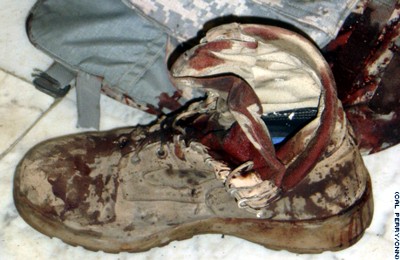Analysis: Wounded in Iraq: Shattered bodies, shattered lives

BAGHDAD, Iraq (CNN) -- "Ever seen someone have their chest cracked," one of the medics asked me on my first day in May at a combat hospital here in Iraq.
How in the world do you answer that question?
"Not as far as I can remember," I said sarcastically.
"You will," he answered with a sly, childish grin on his face.
I had no idea what I would see and how real the war becomes here in the 10th Combat Support Hospital in Baghdad -- the busiest in the country.
Helicopters land around the clock, bringing in U.S. troops wounded and dead, along with wounded insurgents and civilians.
The job of these doctors and medics is to save the life of someone who has endured "fresh trauma," which means they were pulled directly from the battlefield and taken right into the trauma room. Eighteen-year-old medics are doing things here that they would never do back home. They do it, because they have to. No one can imagine the strength it takes to look another 18-year-old in the face as he pleads for his life, putting his entire future in the hands of people he has just met.
It happens here, every day.
The U.S. military has now had more than 20,000 troops wounded in Iraq and nearly 2,700 more killed. More than 9,100 of the wounded were unable to return to duty -- their injuries taking them home to their mothers, fathers, brothers, sisters, wives and children. In the statistical tables and graphs released by the military, they are just numbers with no mention of what combat wounds really look like.
At combat hospitals across Iraq, medics see limbs completely blown off, head "shots and blasts," burns, contusions, compound fractures and bullet wounds to name just a few. An improvised explosive device -- the phrase the military uses to describe the deadliest of insurgent weapons -- doesn't just send shrapnel into the body, it tears the body apart. Americans hear this term every day, as if it's another regular item in the daily news.
What they don't see is what it does to the soldiers. The human body literally shatters and tears. As one doctor told me, "You realize that all we are is a very thin bag of water."
Read the rest at CNN
Related Link:
Doctors in Iraq weather emotional toll

<< Home